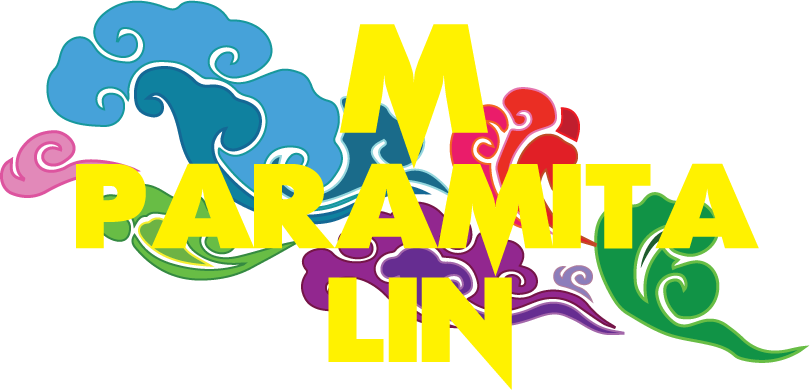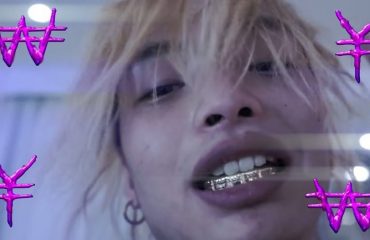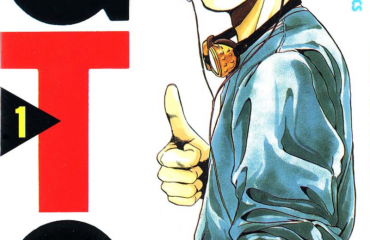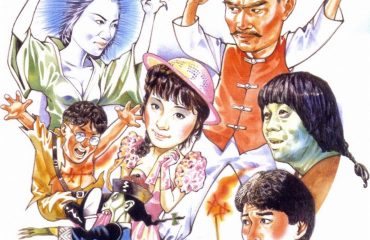Note: This is the fourth installment of my Tough Guys, Gangsters, and Delinquents series, and this post takes a look at the very underrated Portland Street Blues, which really deserves more recognition for its contribution to the gangster genre. More spoilers than bloodshed!
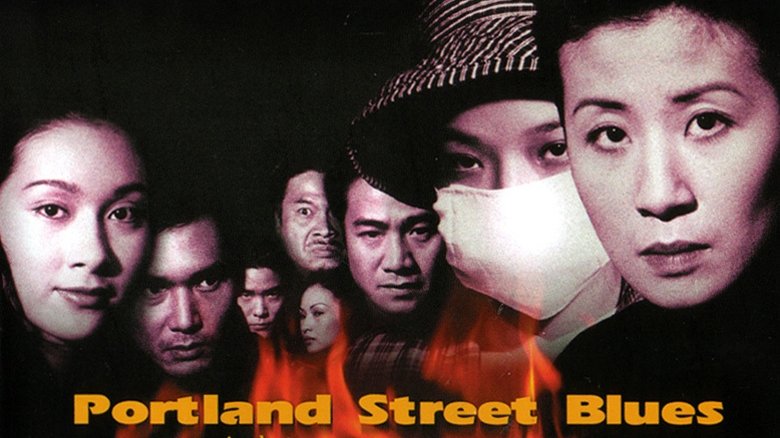
Portland Street is a street in the Mong Kok district famous for its brothels, gambling dens, and general unsavouriness. Even after handover, with the decrease in triad activity and the increase in the gentrification of Mong Kok, it’s still not a place where you’d like to get in trouble. I used to visit a triad doctor whose original clinic had been on Portland Street but even he was forced to move in the early 1990s because it was too dangerous. Mind you, this is a dude whose waiting room includes patients like this one uncle in a stained wifebeater and missing one shower sandal with one of his calves wrapped up with a bunch of bloodstained newspapers. He’s just probably a butcher who had an accident. A butcher who butchers all night because he’s just that busy…right?
In the Young and Dangerous spinoff Portland Street Blues, Thirteenth Sister (Sandra Ng) is already one of the twelve heads of the Hung Hing Society at the start of the movie, but we get an extended flashback that shows her roots as a smartass punk roaming around Portland Street.
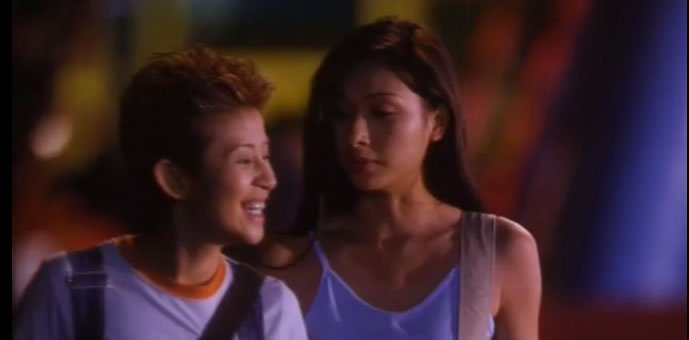
The Thirteenth Sister character is an old one that has its roots in Cantonese operas and wuxias. Usually, it’s a righteous and extremely skilled character who takes revenge on behalf of her family, more often than not her father, who has been wronged. In 1927, a film called Heroic Son and Daughter came out with a Thirteenth Sister who is the only actual heroic character, the “heroic son” in question being a refined scholar who needs to be regularly rescued by his martial arts fighter wife, Thirteenth Sister. I’m not sure if the film ever explained the source of the name, though.
Later on, other Thirteenth Sisters appeared in different films and dramas, with the most famous one coming out in 1983: an extremely popular wuxia drama series (which introduced one of the most popular karaoke songs among uncles and aunties of a certain generation) called Thirteenth Sister in Chinese but Legend of the Unknowns in English. Cecilia Wong stars as Thirteenth Sister, who takes her name after killing thirteen people in the process of avenging her father.
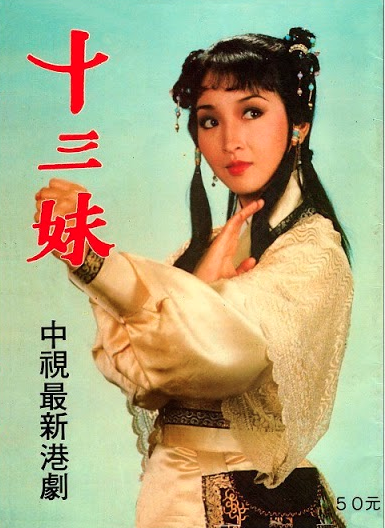
Portland Street Blues’ Chinese title is Young and Dangerous Love and Righteousness Chapter: Hung Hing’s Thirteenth Sister, and in this version, Thirteenth Sister gets her nickname after her father Tat (Ng Man-Tat) wins at thirteen mahjong games the night she was born. (I really think that Hong Kong films really excel at this kind of self-deprecating humour.)
The wronged father in this particular Thirteenth Sister story is a low-level triad member who gets kicked around by the bosses and has to put up with it, even though they rob and abuse him. It’s a really sobering reminder of what life is like for most of the people who join the triad. They’re less likely to be Chan Ho-Nam than this poor man, and out of all the gangster movies, Portland Street Blues is the one that often feels like it has real-life stories of poor and working class people at its core.
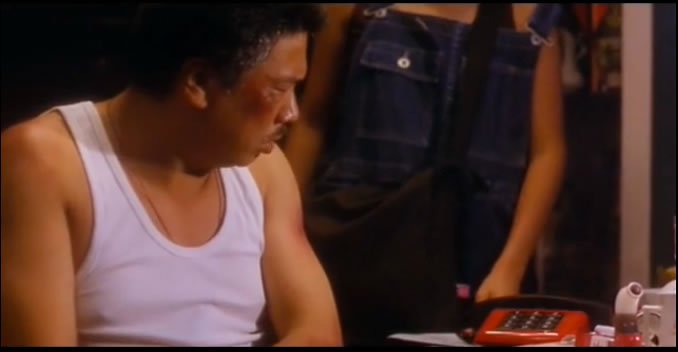
Ng Man-Tat’s performance as one of those good-natured and well-meaning but doomed uncles felt so painfully familiar to me that there were moments I had to stop and whoosah for a moment. I have relatives and family friends who are exactly like Tat, and most of them have not survived well into old age. Tat is eventually murdered for trying to protect a teenaged Thirteenth Sister, who is in trouble with triad boss Hum Sup (John Ching) after she and her beautiful friend Yun (Kristy Yeung Kung-Yu) try to scam him. (Just a quick note here, “hum sup” means “lech” or “pervert” in Cantonese, and I just can’t accept the English name used in the film, which is S.O.B., because it just doesn’t make sense.)
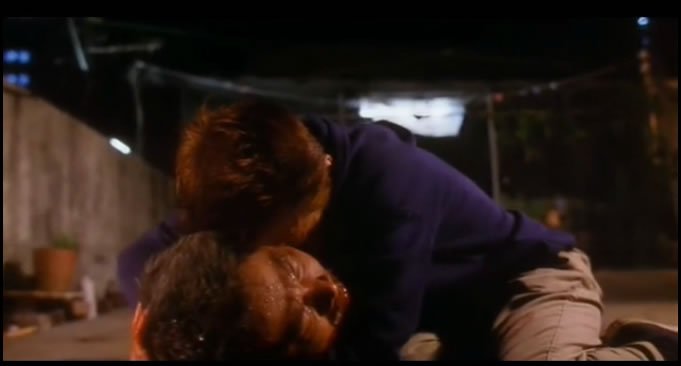
More than any of the other gangster films, Portland Street Blues focusses on people who aren’t young, able-bodied men. It’s one of the few movies out there that looks at what happens to vulnerable people navigating the crime world: the weak, the elderly, and especially women. Young Thirteenth Sister and especially Yun have to fend off lecherous men all the time, and from the beginning, it’s made clear to us that sex is the only power that women in their position have in this world.
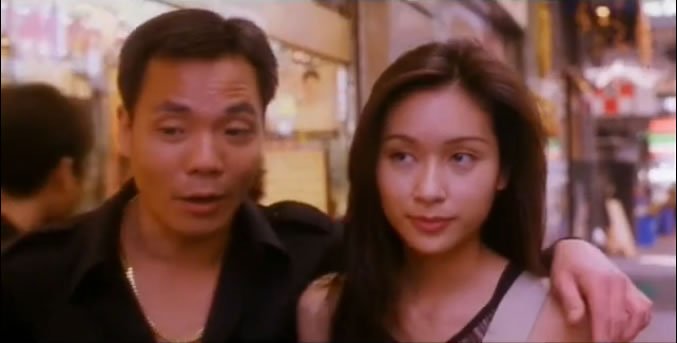
As is standard with jianghu and gangster movies, lustful men like Hum Sup, who only see women as sex objects, are shown as despicable and unworthy of respect. They’re not real men since they don’t behave in the honourable way that men are supposed to when it comes to women.
The other terrible man in the movie is a corrupt police officer James (James Wong Ka-Lok), who has an affair with a club hostess played by Shu Qi. He eventually spurns her in the most melodramatic way ever with a kick in the stomach. Shu Qi’s character proceeds to miscarry their baby on the street, the pain of which causes her to take heroin, which causes her to become addicted instantaneously. It’s kind of sweet that the writers don’t know how opioid addictions work.
To add further injury to injury, Shu Qi’s character confronts James one more time, only for him to break a bottle over her head, scarring her so badly that she takes the name Scarface, despite the scars actually not even being visible or even on her face.
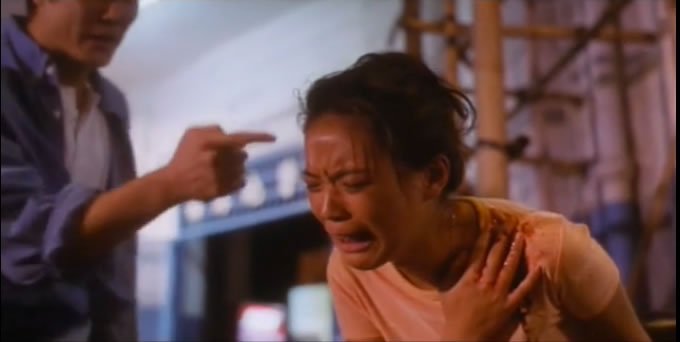
Of course, these men are punished for how they treat women. James gets stabbed by Scarface and then shot by Thirteenth Sister at his wedding, no less. And it’s this assassination of a man who abuses women that gets Thirteenth Sister–the only woman in Hung Hing–started as an up-and-comer in the triad.
Hum Sup, on the other hand, is killed by rival triad Tung Sing member Coke (Alex Fong Chung-Sun) while Hum Sup trying to have sex with a prostitute in a van. It also fits into the jianghu ethical code that Hum Sup, a failure at manliness because of his lecherousness, is dispatched by Coke, who is so manly, just his mere presence will make your voice drop two octaves and hair grow on your chin. He’s so handsome and manly that he’s the only male character worthy of Thirteenth Sister’s love, and because he’s the paragon of healthy masculinity, Coke treats her unrequited feelings with kindness and patience.
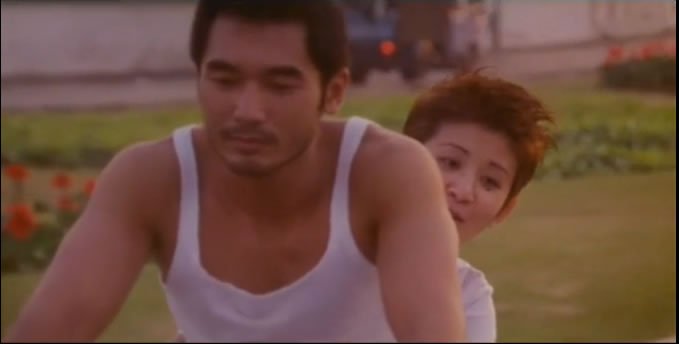
I was a little surprised to find out that some people think that Thirteenth Sister turns gay because Coke isn’t romantically interested in her. I don’t think the film made that point, and I find the whole suggestion odd and nonsensical, as if rejection could affect your sexuality so profoundly. That would mean a lot of dudes should be gay by now, then.
I think what Portland Street Blues manages here is a fairly realistic depiction of the way sexuality is fluid and open-ended. Those of us who went to single-sex schools in Asia know that it’s perfectly normal to be infatuated with people of the same sex, and it’s not something that I remember being a big deal, although most people end up in heterosexual relationships later.
So why couldn’t a gay character like Thirteenth Sister have a crush on a man? I mean, it’s ALEX FONG CHUNG-SUN, for God’s sake. Have I mentioned how manly he is? I bet he had a whole bunch of heterosexual boys infatuated with him when he was in school, too. It doesn’t make Thirteenth Sister any less gay. I mean, LOOK AT HIM.
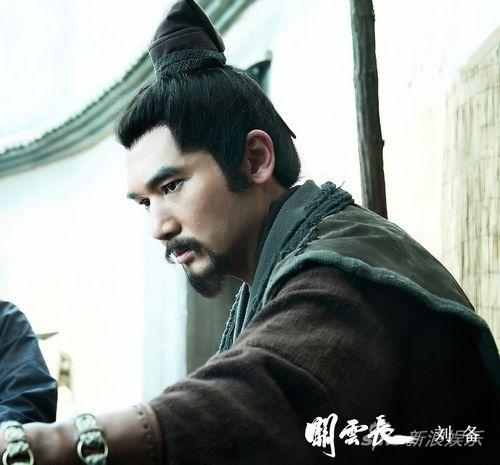
There are still many things to be improved in Asia when it comes to LGBTQ issues, but I think Portland Street Blues is a pretty good example of how sexuality can be accepted in China, at least among the working class and poor.
Thirteenth Sister is accepted in Hung Hing as she is, and she’s treated like a brother in every way. Only the villains in the movie try to insult her by bringing up her sexuality or sex. She has a close relationship with another branch leader, Ben Hon (Vincent Wan), who tells her that she’s tougher and better than a man. They’re both best friends who go to hostess bars together, but Ben also loves Thirteenth Sister and gives her an engagement ring as a sign of their “brotherhood”. I thought this was one of the most realistically messy and complex relationships in Young and Dangerous (and maybe even in most movies). I mean, who hasn’t been through something similar, like you get so close to someone that you get confused about the type of love you feel for them?
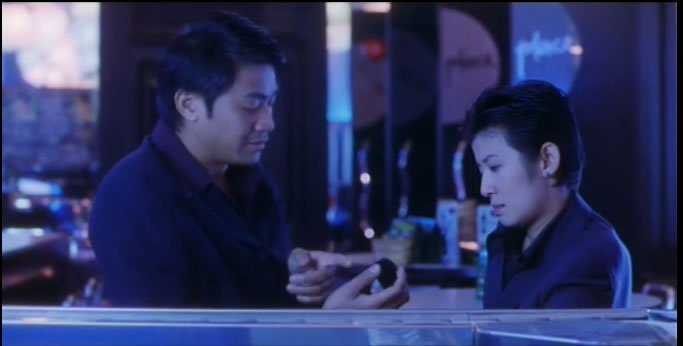
I have to say that I appreciated that Thirteenth Sister doesn’t look fake butch, the way movies frequently try to make masculine women still appear sexually attractive to men, with lots of makeup or something unrealistically girlish about them. Thirteenth Sister looks and behaves exactly like the tomboyish lesbians I know in Hong Kong, and there’s no attempt in the film to make her more feminine for male audiences or to be “worthy” of Ben Hon’s admiration and love. She looks badass and butch, and it’s great.
It does bring up the question: can a woman succeed in the triad without giving up her femininity? Does she have to be masculine in order to be a competent killer and pimp? Since feminist theorists have been arguing about this for decades, I’m not going to get into it, but it is an interesting thing to think about.
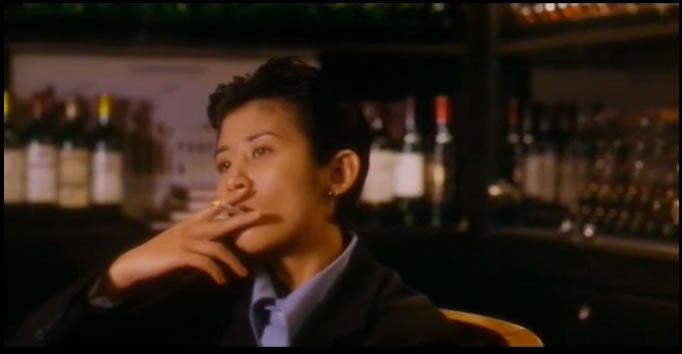
It should be pointed out, though, that sisterhood doesn’t exist in the film the way brotherhood does. Thirteenth Sister runs the Hung Hing brothels on and bars on Portland Street, so her work is basically the sexual exploitation of other women. She has two chicks following her around, but they’re kind of like minor henchmen, and her loyalties lie with her sworn brothers.
Thirteenth Sister doesn’t have a female friend who’s like a brother to her, and even her close friendship with Yun turns out to be romantic in nature–Yun has been secretly in love with her all this time. The only equal friendship she has is with Scarface, a woman who is no longer a woman because of her terrible, invisible scar. It’s in conversation with Scarface that Thirteenth Sister provides really poignant commentary: as poor, working class women, they’re stuck in the world of Portland Street, with places like Central district (the financial and asshole centre of Hong Kong) inaccessible to them.
But a woman like Scarface who isn’t masculine and who has lost the sexual power/currency that she used to have as a beautiful prostitute doesn’t really have a place on Portland Street either. She dies during their revenge on James, and it’s a death straight out of a melodrama, with Scarface whispering how much she loves James, but she hates him even more.
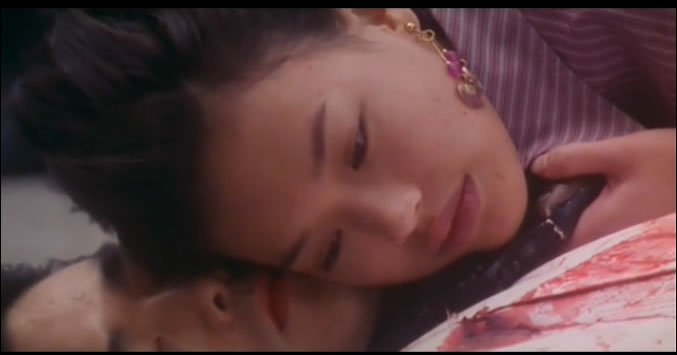
In the end, it’s still Thirteenth Sister’s brothers who have her back and help her out when she’s being ambushed by the Tung Sing members. Chan Ho-Nam himself makes an appearance, with Ekin Cheng sporting a salon-fresh blowdry. It’s a little weird to suddenly see the rest of the Hung Hing brothers appear just to somehow shoehorn Ekin into the story and get more asses in the theatre, but I guess it does show that Thirteenth Sister is considered a full brother, so there’s that.
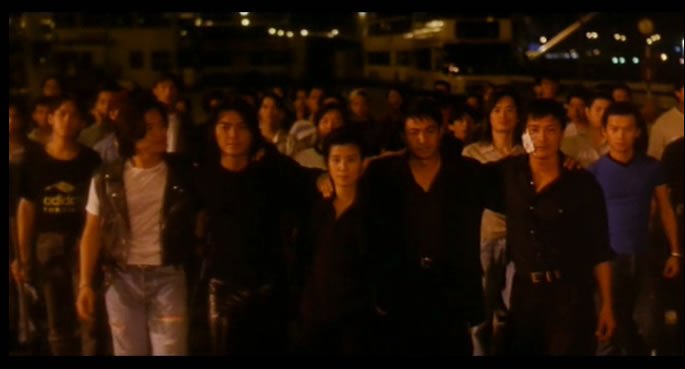
Sandra Ng ended up winning a lot of accolades and an award for her acting, which may be the best one in the entire Young and Dangerous series. The tiny details of her performance are compelling: the tears she can’t stop when she decides to have her ex-lover beaten for being a traitor and the look on her face when she stops her henchman from breaking her ex-lover’s fingers because it’s something that happened to her as a teenager and she remembers the pain. It’s a shame that this movie isn’t as easily available nowadays as the rest of the series.
